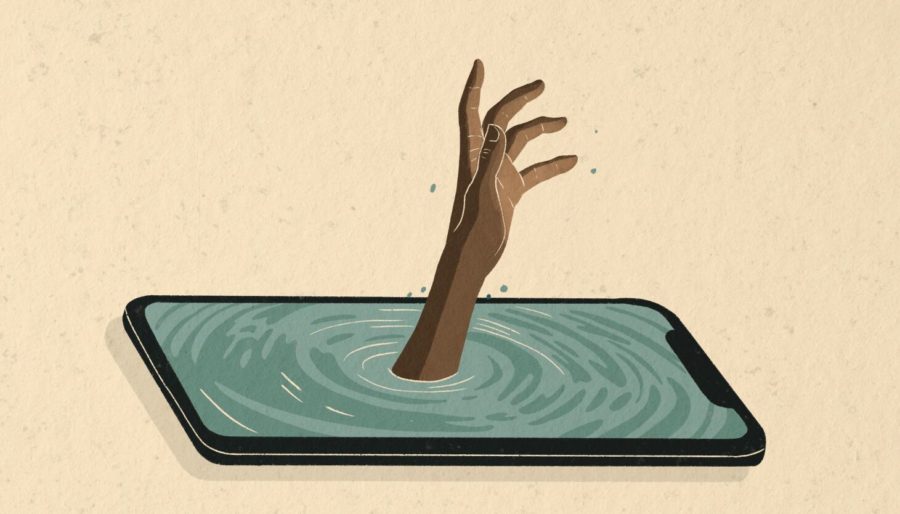Managing the Effects of Social Media on Teens
For many teens social media can be almost addictive. There are various factors why social media negatively affects teens.
Before they shower, brush their teeth, and eat breakfast most teenagers start their day by reaching for their phone. They might scroll through Instagram posts from classmates, look at TikToks from their favorite creators, or check the various group chats that they might be in with friends. To adults, these may seem like trivial activities however for most teens social media platforms can have significant effects on their mental and emotional health.
Most teenagers are on their phones for about 7 hours and 22 minutes… daily. This time multiplied by the seven days a week equals 50 hours and 54 minutes, and teens are spending work weeks on their electronic devices. Most of this use is happening before bedtime, which is taking away from the amount of sleep teens get, which is problematic for their overall development. Social media can be a powerful tool for many and various different reasons, however, it can also impact teens negatively. When it comes to teens their browsing habits can directly impact their mental health, which can lead to cyberbullying, depression, and even suicide.
The first thing that parents or even teens themselves can do in order to manage social media use is to identify intentions and habits. Use a face-to-face conversation with a parent or guardian and ask the teen what their intentions are with social media, what are they on it for, and what they want others to think about their social media content. Secondly, teens can set screen times or screen-free zones for themselves. This can be done by making use of in-device limitations that restrict screen time and social media use without completely blocking it.
A healthy use of screen time is something you do to fill in the gaps of activities that are priorities. Parents and teens should think about what their priorities are and identify what they actually want to spend their time doing, whether this includes pursuing hobbies, school work, exercising family time, socializing, or rest. Ultimately considering whether phones and social media are taking away from those priorities. Re-imagining how to spend time during social isolation can be a pivotal opportunity to create a healthier lifestyle and lead to better mental health outcomes.
Your donation will support the student journalists of Ames High School, and Iowa needs student journalists. Your contribution will allow us to cover our annual website hosting costs.



























